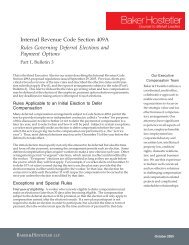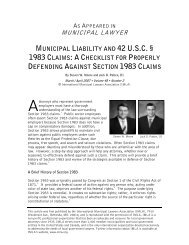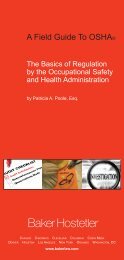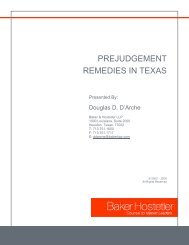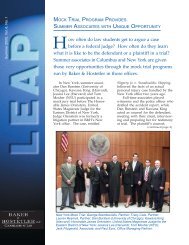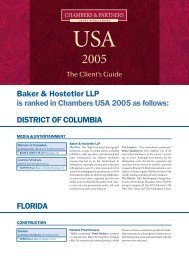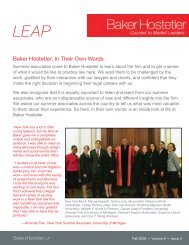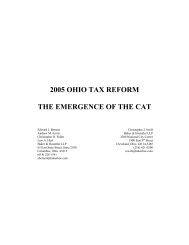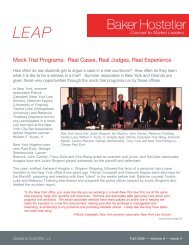The Charity Care Requirement for Hospital Property Tax Exemptions
The Charity Care Requirement for Hospital Property Tax Exemptions
The Charity Care Requirement for Hospital Property Tax Exemptions
You also want an ePaper? Increase the reach of your titles
YUMPU automatically turns print PDFs into web optimized ePapers that Google loves.
proves unable to pay after the economic situation of the patient is established—perhaps<br />
after a debt collector is involved.<br />
<strong>The</strong> Provena court accepted that a hospital should collect amounts from patients<br />
who can pay. Moreover, the court acknowledged the need to employ collection agencies.<br />
<strong>The</strong> court, however, concluded that a bad debt is not charity, even if the end result is the<br />
same with the hospital discounting or writing off the cost of its services. <strong>The</strong> appellate<br />
court would contrast the providing of services without the expectation of compensation,<br />
which is charity, from the providing of services and proceeding as a creditor but then<br />
concluding as a matter of business judgment to abandon the collection of the fee. <strong>The</strong><br />
court concluded that the creditor relationship even without collection is still the negation<br />
of charity.<br />
<strong>The</strong> appellate court rejected qualification <strong>for</strong> exemption based on the existence of<br />
other charitable benefits provided to the community by Provena, which the court<br />
characterized as the use of the federal income tax community benefit standard, rather than<br />
the standard employed <strong>for</strong> the Illinois property tax. <strong>The</strong>se other contributions asserted by<br />
Provena were the following:<br />
Crisis Nursery Services & Support;<br />
Volunteer (community benefit) classes/services;<br />
Emergency Medical Services (training & support<br />
to community and area agencies);<br />
Charitable subsidy of an ambulance service;<br />
Donations to Other Not-<strong>for</strong>-Profits (less value<br />
of participation);<br />
Behavioral health community benefits; and<br />
Subsidy <strong>for</strong> graduate medical education.<br />
Finally the appellate court rejected the public policy concerns raised by the amici<br />
in the case. <strong>The</strong> court acknowledged that public policy issues were the responsibility of<br />
the legislature and not the courts. <strong>The</strong> Provena court then turned that argument against<br />
Provena by declining to permit continuation of the charitable exemption <strong>for</strong> Provena until<br />
the legislature addressed the concerns expressed by the appellate court on the Provena<br />
record. <strong>The</strong> court concluded its reasoning as follows:<br />
It is of obvious public benefit <strong>for</strong> any community to have<br />
available one or more modern hospitals, but until such time<br />
as the legislature sees fit to either change or make definite<br />
the <strong>for</strong>mula <strong>for</strong> the determination of the medical/charitable<br />
8



